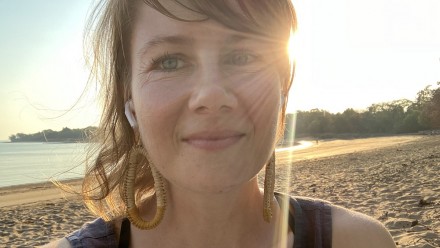Burnout is real. Just ask early career doctors
Russell Thomas graduated medical school as a confident doctor ready to take on the challenges that lay ahead.
A few years into his career he started experiencing feelings of dread before arriving at a shift. The dread was accompanied by feelings of imposter syndrome, fear of failing at procedures he once felt confident performing, and feelings of struggling in his role - all wrapped up in extreme fatigue.
Dr Thomas’s experience is not uncommon. Early career doctors are at high risk for stress and are more susceptible to burnout than their senior colleagues. Burnout is not only undesirable for the individual, but it can have adverse effects on patient care.
A study undertaken pre-COVID, in 2019, found that 47.5% of first-year doctors reported emotional exhaustion, and 45.8% reported high cynicism (a negative or indifferent attitude) to their job. Both are indicators of burnout.
In a new research study led by Dr Brett Scholz, Senior Research Fellow at the Australian National University (ANU) Medical School, a team of students from the Doctor of Medicine and Surgery program are investigating the impact of early career doctors attending work while unwell because of high work demands, and their ability to take leave when they are ill or experiencing burnout. The team is inviting early career doctors to participate in the study.
The project includes a multidisciplinary team of researchers including Professor Vinh Lu and Dr Nghia Tran from the ANU Research School of Management, and Professor Imogen Mitchell from Canberra Health Services.
“The causes of burnout are complex and multifactorial, but higher levels of stress are correlated to working over 50-hours per week and working in geographically remote areas with little support,” Dr Scholz said.
“Other stressors can include the conflict between career and personal responsibilities, lack of time for self-care, the pressure of studying for training exams, and the absence of support from senior colleagues to deal with the pressures and responsibilities of the job.”
Dr Alexandra Roberts, one of the students working on the research project, noted, “We know that burnout in health professionals is correlated with higher rates of unfavourable outcomes for patients, increased patient dissatisfaction and increased patient and family complaints.”
“What we don’t know is the impact that presenteeism (when a doctor attends work when sick) and absenteeism (when a doctor takes leave due to illness or burnout) has on patient care. This is an area we hope to shed some light on through the study,” Ms Roberts added.
Although Dr Thomas was able to identify his need to seek help and was able to access support, many doctors experiencing burnout won’t get the help they need due to embarrassment, fear of lack of confidentiality, and stigmatising attitudes towards doctors with mental ill-health.
If you’re an early career doctor, up to 5-years into your medical practice, the research team invite you to participate in this anonymous story completion study.
If you need support, please contact Lifeline on 13 11 14 or speak to your organisation about their Employee Assistance Program services.














